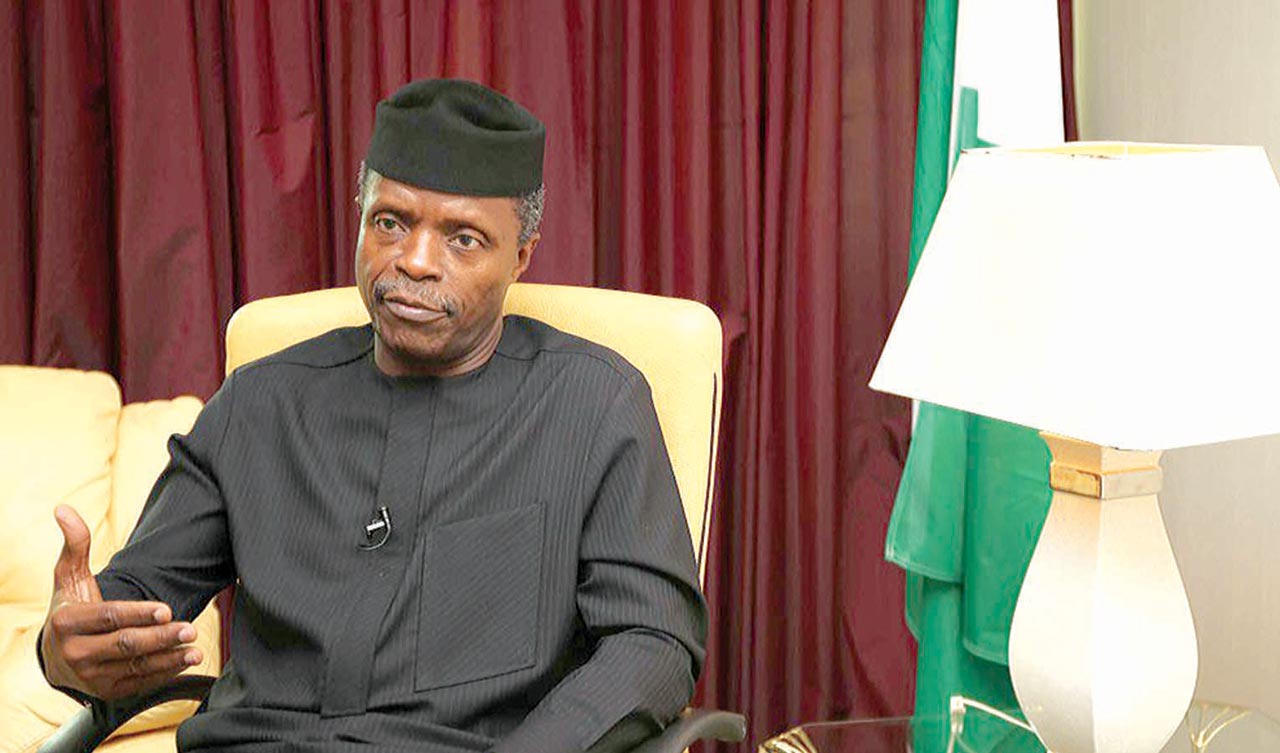Vice President Yemi Osinbajo has said the Federal Government is optimistic that the economy will do better despite the predictions of a recession by international financial institutions.
Addressing journalists in Abuja last weekend, he said President Muhammadu Buhari’s statement at the budget presentation on Thursday that Nigeria might slide into the second recession in four years due to the declining growth was based on the predictions going by all the different factors.
- ‘Breakup’: Southern youths tackle ACF for criticizing Osinbajo
- We would be callous, irresponsible if we fail — Osinbajo
“All over the world, as you know, economies and Gross Domestic Product (GDP) figures have crashed on account of the COVID-19 and the attendant difficulties.
“As a matter of fact, if you look at our own GDP this quarter, it fell by just 6 per cent. It’s one of the best in the world and when you compare other countries that their GDP losses have gone as far as 20, 30, and 50%. So, minus 6 is quite good considering what has happened all over the world. Now, what we’re hoping to do is to ensure that even if we can be positive by all means.”
He said it was a shock to the economy for a revenue drop of about 60%. “So realistically, we’re cautiously optimistic that we’ll stay within range in terms of the GDP. But if we can get to the positive, of course, by all means, we’re hoping that everything we’re doing can get us into positive territory.
“These predictions are, of course, predictions by IMF, World Bank and all the international agencies, rating agencies as well as our own NBS- but we’re very optimistic that we might be able to do better,” he said.
Osinbajo said Nigerian economy was already diversified as other sectors of the economy, especially agriculture and financial services were making significant contributions to the GDP.
“What we need to do is increase foreign earnings. So, with agriculture and processing, for example, we want to be able to earn more from export. I think that a lot of that is going on.”
He however said the source of foreign exchange earnings is mainly oil, and that the government was working to improve non-oil revenue.
The vice president said more private investment was needed in rice processing for the price to drop.
He said foreign rice was cheaper because a lot of it was subsidized; while some of it was of very poor quality and was dumped.
“Local rice is still at a stage where we’re still trying to get capacity for processing, which is vigorous. So, we have these mills, but they’re not enough. We get a lot of paddy rice, which is essentially local rice, but it has to go through processing in order to come to the market.”

 Join Daily Trust WhatsApp Community For Quick Access To News and Happenings Around You.
Join Daily Trust WhatsApp Community For Quick Access To News and Happenings Around You.


